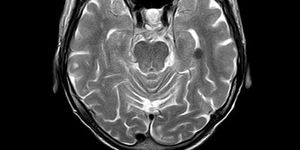Researchers Use AI to Accelerate COVID-19 Drug Development
Researchers from the National University of Singapore (NUS) have developed an artificial intelligence platform to accelerate the process of finding drugs for bacterial and viral infections. In particular, they intend to use their system to combat COVID-19.
The process of developing new drugs in response to the emergence of new bacterial and viral infections usually involves testing a combination of many different, existing drugs.
Traditional methods make it hard to track how drugs interact due to the millions, if not billions, of possible interactions. Meanwhile, as dosage is decided by trial and error, the process quickly becomes very time-consuming. Then, as these approaches are usually carried out in vitro, there is no guarantee that positive results at the petri dish-level will translate into the human body. Collectively, these factors make drug development time-consuming, costly and extremely laborious.
To accelerate the process and yield more reliable results, Professor Dean Ho from NUS and his colleagues from Shanghai Jiao Tong University developed an artificial intelligence platform called Identif.AI. It works by using historical data on drug interactions to predict how selected drug candidates will interact, as well as which further tests will be needed.
To test their platform, the researchers carefully selected 12 drug candidates to treat a lung infection caused by the vesicular stomatitis virus (VSV), and then ran them through the system. Ho says, “Using IDentif.AI, we took three days to identify multiple optimal drug regimens out of billions of possible combinations that reduced the VSV infection to 1.5% with no apparent adverse impact. This speed and accuracy in discovering new drug combination therapies is completely unprecedented.”
Having proven its efficacy, the team now hopes to use the platform to tackle COVID-19. Beyond being able to quickly identify drug candidates and streamline experiments needed to test them, the researchers hope that their system will be able to identify whether different treatments suit different individuals.
“As the development of vaccines and antibody therapies for COVID-19 are ongoing, we will need a rapid therapeutic strategy that addresses the virus which may evolve over time...Our strength is that we can perform one experiment and come out with a list of drug combinations for treatment within days. And in time, if patients do not respond well to the first combinations of drugs, we can derive new combinations within days to re-optimize their care.” says Ho.
Sources: Futurity, Advanced Therapeutics, Technology Networks









